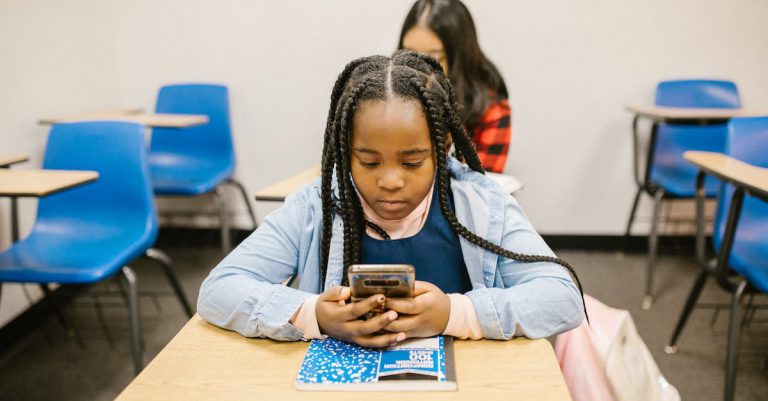Are you wondering whether year-round school is a good idea? If so, you’re not alone. Many parents, students, and educators have been debating the pros and cons of this type of schooling for years.
If you’re short on time, here’s a quick answer to your question: Year-round school is not a good idea. In fact, there are many reasons why it’s a bad idea. In this article, we’ll take a closer look at the most compelling reasons why you should avoid year-round school.
From decreased academic performance to negative effects on student mental health, we’ll explore the many reasons why year-round school is a bad idea. So, let’s get started!
Academic Performance
Year-round school, also known as a balanced calendar, has been implemented in some schools as a way to combat summer learning loss and improve academic performance. However, research has shown that year-round school can actually have a negative impact on academic performance.
Shorter breaks make it harder for students to retain information
One reason for this is that shorter breaks make it harder for students to retain information. Students need time to process and solidify what they have learned, and longer breaks can allow for this. Shorter breaks in a year-round school calendar can lead to a constant cycle of learning and forgetting, ultimately hindering academic performance.
Year-round school can lead to burnout
In addition, year-round school can lead to burnout. Without adequate time for rest and relaxation, students may become fatigued and disengaged from their studies. This can lead to a decrease in motivation and academic performance.
It is important to note that not all students are affected the same way by year-round school. Some students may thrive in this type of environment, while others may struggle. It is important for educators and parents to consider the individual needs of each student when making decisions about their education.
Costs
Year-round school can be more expensive for schools
Implementing a year-round school system may come with additional costs for schools. These costs often come from the need to hire more staff, create new schedules, and provide additional resources such as transportation and maintenance services. According to the National Education Association, schools may need to spend up to 20% more on operating costs when switching to a year-round schedule [1].
Year-round school can be more expensive for families
Year-round school may also place a financial burden on families. With shorter, more frequent breaks, families may struggle to find affordable childcare options or may have to pay for additional summer programs. Families may also face higher travel costs as the traditional summer vacation season becomes shorter and more crowded. According to a report by the Center for Public Education, families may need to spend up to 15% more on childcare costs with a year-round school system [2].
The benefits may not outweigh the costs
While some proponents of year-round schooling argue that the benefits of a more frequent schedule outweigh the costs, others disagree. There is limited research to support the idea that year-round schooling improves academic achievement, and the costs of implementing such a system may not be justified. Additionally, year-round school schedules can disrupt family routines and make it difficult for students to participate in extracurricular activities or summer jobs. As a result, many families and educators may not see the benefits of a year-round school system as outweighing the costs [3].
Family Time
One of the biggest drawbacks of year-round school is that it can make it harder for families to spend time together. With shorter, more frequent breaks throughout the year, it can be challenging for parents to plan vacations or family outings.
Year-round school can disrupt family vacations and travel plans
Traditional school schedules typically have a long summer break, which allows families to plan vacations and travel during that time. However, year-round schools have shorter breaks throughout the year, making it difficult for families to plan extended trips. This can lead to families feeling rushed and stressed during their vacations, or even missing out on them altogether.
Additionally, year-round schools often have different schedules than traditional schools, which can make it difficult for siblings to be on the same schedule. This can further complicate family vacation plans and make it harder for parents to juggle work schedules and childcare.
Overall, the disruption to family time is a significant consideration when evaluating the potential drawbacks of year-round school.
Summer Jobs and Internships
Year-round school can make it harder for students to find summer jobs and internships
One of the biggest drawbacks of year-round school is that it can make it challenging for students to find summer jobs and internships. With shorter breaks between semesters, students may not have enough time to secure an internship or a summer job. This could lead to missed opportunities for students who want to gain work experience or earn some extra money during the summer months.
According to a study conducted by the National Center for Education Statistics, students in year-round schools were less likely to participate in summer jobs or internships compared to students in traditional schools.
Year-round school can limit opportunities for summer learning experiences
Summer is a time for students to explore their interests and learn outside of the traditional classroom setting. However, year-round school can limit opportunities for summer learning experiences. With shorter breaks, students may not have enough time to attend summer camps, take part in specialized programs, or travel abroad.
Research has shown that summer learning loss is a significant issue, particularly for students from disadvantaged backgrounds. By limiting opportunities for summer learning experiences, year-round school could exacerbate this problem.
Mental Health
Year-round school can have negative effects on student mental health
Year-round schooling may seem like a good idea for increasing learning opportunities, but it can also have negative effects on student mental health. One of the main concerns is that students may feel burnt out or overwhelmed from the constant schooling. Many students need time to relax and recharge during the summer months, and year-round schooling can take that away from them. Some students may also struggle with the lack of a consistent routine, which can lead to feelings of anxiety and stress.
Year-round school can lead to increased stress and anxiety
Studies have shown that year-round schooling can lead to increased stress and anxiety levels in students. This is because students are constantly under pressure to perform and keep up with their studies. They may feel like they do not have enough time to complete assignments or study for exams. Additionally, the shortened breaks between school sessions may not be enough time for students to fully decompress and recover from the stress of school. This can lead to a vicious cycle of stress and anxiety that can be detrimental to a student’s mental health.
According to the American Psychological Association, chronic stress can lead to a variety of health problems, including anxiety disorders, depression, and heart disease.
Comparison: Traditional school vs. Year-round school
| Traditional School | Year-round School | |
|---|---|---|
| Breaks | Long summer break | Shorter, more frequent breaks |
| Students have a chance to recharge and decompress during the summer break | Increased stress and anxiety levels due to constant schooling | |
| Learning Opportunities | May miss out on learning opportunities during the summer break | More opportunities for continuous learning throughout the year |
It is important to consider the potential negative effects of year-round schooling on student mental health. While it may seem like a good idea for increasing learning opportunities, it is important to weigh the pros and cons before implementing such a system.
Childcare
One of the biggest challenges of year-round schooling is finding affordable childcare for families. With shorter and more frequent breaks, parents may struggle to find reliable and affordable options for their children during these times.
Year-round school can disrupt childcare routines
Year-round schooling can also disrupt established childcare routines. Parents who have set up schedules with babysitters or daycare providers may have to rearrange their plans to accommodate the frequent breaks throughout the year.
This can be particularly difficult for parents who work full-time or have inflexible schedules. They may have to take time off work or find alternative arrangements, which can be stressful and disruptive for both parents and children.
- According to a study by the National Summer Learning Association, parents spent an average of $998 per child on summer childcare in 2019
- Another study found that year-round schooling led to increased stress and anxiety for parents who struggled to balance work and childcare responsibilities
In addition, some families may not have access to reliable childcare options at all, which can have a negative impact on children’s academic performance and overall well-being.
Overall, year-round schooling can be challenging for families who rely on consistent and affordable childcare options.
Teacher Burnout
Year-round school can lead to burnout for teachers
Teachers are the backbone of the education system, and year-round schooling can easily lead to teacher burnout. Teachers are tasked with creating lesson plans, grading papers, and providing students with the utmost attention and guidance. The extended school year can lead to added stress and fatigue for teachers, who may not have enough time to recharge and prepare for the next school year.
A study conducted by the National Education Association found that teachers who work year-round school calendars often suffer from burnout, which can lead to high rates of absenteeism, low morale, and decreased job satisfaction. Teachers need time to recharge and prepare for the next year, and a year-round calendar may not provide sufficient time for them to do so.
Teachers may not have enough time to recharge and prepare for the next school year
The traditional school year allows teachers a summer break to recharge and prepare for the upcoming year. However, year-round school systems may not provide teachers with enough downtime to recharge. A study conducted by the Center for Applied Research and Educational Improvement found that teachers in year-round school systems are more likely to experience burnout and leave the profession than those in traditional school systems.
Without adequate time to recharge and prepare, teachers may not be able to provide the level of instruction that students need. This can lead to a decrease in student achievement and negatively impact the overall quality of education. It is important for teachers to have a work-life balance that allows them to provide the best possible education for their students.
Logistical Issues
While year-round schooling may seem like a good idea on paper, it can create a lot of logistical issues for schools. Here are some specific ways in which year-round school can be problematic:
Year-round school can create logistical challenges for schools
One of the biggest issues with year-round schooling is that it can be difficult for schools to manage. With traditional schooling, there is a set schedule that everyone follows. However, with year-round school, there are multiple schedules to manage, which can be confusing and difficult to keep track of. Additionally, schools may need to hire more staff to accommodate the different schedules, which can be costly.
Year-round school can make it harder to schedule extracurricular activities
Another issue with year-round schooling is that it can make it harder to schedule extracurricular activities. With traditional schooling, students typically have a summer break during which they can participate in summer camps, internships, or other activities. However, with year-round school, students may be in school during certain weeks when these activities are taking place. This can make it difficult for students to participate in extracurricular activities that are important for their personal and academic growth.
Traditional Summer Activities
Year-round school can limit opportunities for traditional summer activities
Year-round school has become an increasingly popular alternative to the traditional school calendar. However, it has its drawbacks. One of the biggest disadvantages of year-round schooling is that it can limit opportunities for traditional summer activities. With year-round school, students attend school for a set number of days throughout the year, with shorter breaks in between. This means that students and families may have less time to enjoy traditional summer activities such as family vacations, beach trips, and camping.
Students may miss out on summer camps, sports, and other activities
Summer is also the prime time for students to participate in summer camps, sports, and other activities. With year-round school, students may miss out on these opportunities. Many summer camps and sports programs are only available during the summer months when school is not in session. This can be especially challenging for students who are passionate about a specific sport or activity. They may have to choose between participating in the activity they love or attending school.
Furthermore, summer camps and other activities provide students with valuable opportunities to learn new skills, develop social skills, and build confidence. These experiences can be just as important as traditional classroom learning. When students miss out on these opportunities, they may not be able to develop these skills and may fall behind their peers who have had these experiences.
Source: schoolfamily.com
Lack of Research
Year-round school has been implemented in some schools across the United States, but the long-term effects of this schedule change are largely unknown. There is a lack of research on the subject, making it difficult to fully understand the impact of year-round school on students, teachers, and families.
There is a lack of research on the long-term effects of year-round school
While some studies have been conducted on year-round school, they are often limited in scope and do not provide a comprehensive understanding of the effects of this schedule change. For example, studies may only look at the academic performance of students in the short-term, without considering the impact on their mental health, social development, or overall well-being. Without a deeper understanding of the long-term effects of year-round school, it is difficult to make informed decisions about its implementation.
Schools should proceed with caution when considering year-round schooling
Given the lack of research on year-round school, schools should proceed with caution when considering this schedule change. It is important to weigh the potential benefits of year-round school against the potential risks and drawbacks.
- One potential benefit of year-round school is that it can prevent the “summer slide,” or the loss of academic skills over the summer break.
- However, year-round school can also disrupt family schedules and make it difficult for students to participate in summer activities such as sports, camps, or family vacations.
- Additionally, year-round school may lead to teacher burnout and increased costs for schools, as they may need to provide additional resources and staff to accommodate the new schedule.
Ultimately, schools should carefully consider the potential consequences of year-round school and conduct their own research before making any decisions.
Conclusion
In conclusion, year-round school is not a good idea for many reasons. From decreased academic performance to negative effects on student mental health, there are many compelling reasons to avoid this type of schooling. While some may argue that year-round school has its benefits, these benefits may not outweigh the costs and negative effects.
Ultimately, schools should proceed with caution when considering year-round schooling. While it may seem like a good idea on paper, the reality is that it can have many negative consequences for students, families, and educators alike.






